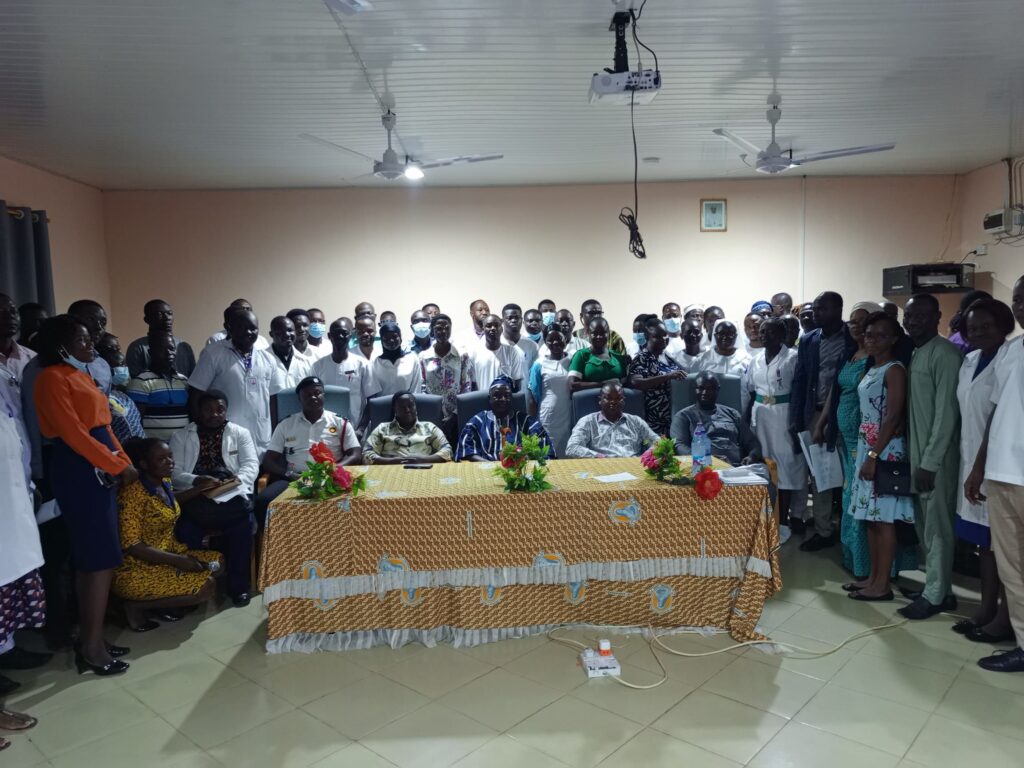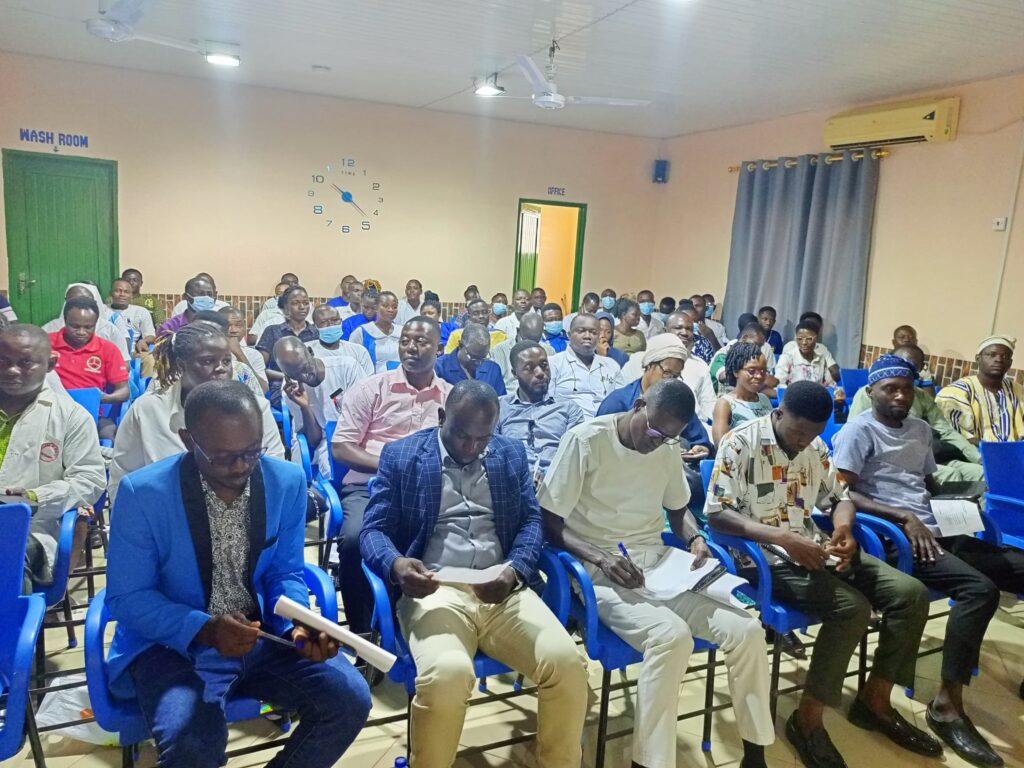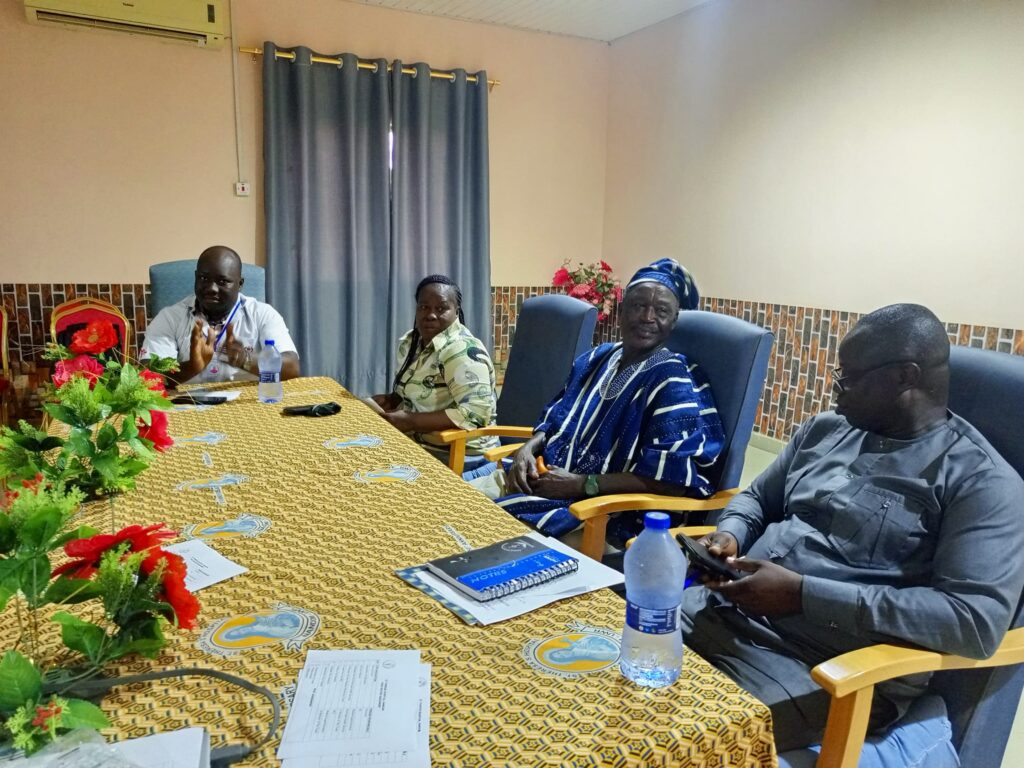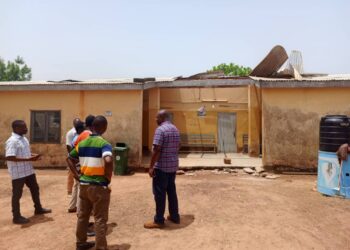The St. Theresa’s Hospital in Nandom scored 78% in this year’s peer review exercise. The review exercise is an annual event in which health workers from other health facilities review the practices of a sister hospital.
The assessment exercise covered eight thematic areas: emergency preparedness, client care, occupation health, IPC, governance, quality assurance, clinical practice, and RDHS.
Dr. Pharm Felix Adu Opare, a Chief Pharmacist from the Upper West Regional Health Directorate, explained that the exercise is meant to assess Nandom Hospital’s performance in terms of quality of healthcare delivery.

“Peer review is just a yardstick we use to measure all the performances in the hospital using a checklist. We move from ward to ward, department to department to look at what is going on there. In case there is a challenge, we make recommendations for improvement. If things are going well, we commend and encourage them to keep it up” Dr. Adu Opare said.
He added that the assessment is used by the Ghana Health Service to improve service delivery to community members. The exercise is been carried out across all hospitals in the Upper West Region.
“It is peers who do the assessment and it also allows them to learn and share ideas to improve health care delivery. This activity is an annual activity.”
Dr. Sebastian Ninimiya Yidana, the medical superintendent of the St Theresa’s Hospital described the assessment as a very good exercise.
“The peer review exercise has made us aware of things we as a hospital might not have paid attention to and now we will see how we can improve upon such things. The assessors are excited about some of our innovations and interventions” said, Dr. Yidana.

Dr. Yidana however lamented the kind of assessment tool that was used and its uniformity during the exercise.
“As a facility, we have identified that most critical cases come to the hospital in the night and for which reason, we have stationed doctors for night shifts. This is helping us to take care of critical cases early enough.”
“We have also installed CCTV Cameras in the hospital and all service areas and this helped to improve security and performance because people know that they are been watched at all times and the tendency to do wrong is reduced. To reduce waiting time, there is a separate OPD for children, adult OPD and antenatal OPD. The hospital also has a fuel depo for office vehicles and generators” Dr. Yidana added.

The Medical Superintendent explained that the hospital screens health workers every year assesses the situation and tests staff members accordingly.
However, the assessment tool limits the hospital to screen on specific conditions and this Dr Yidana believes is not realistic.
“Two years ago, we screened our staff after assessment and one person was found to have a kidney problem and has since been on dialysis. We also noticed that some staff members have issues with their eyesight, ears etc. After testing, a good number of staff members needed to be put on glasses however, these were not considered because they were on the checklist.”



















